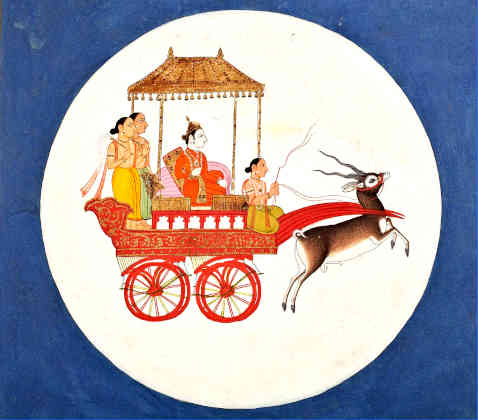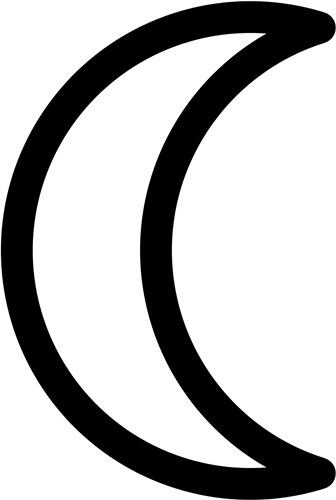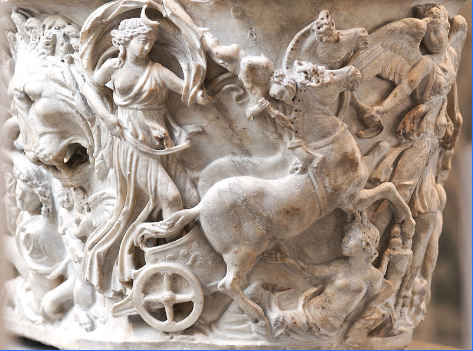The Moon in Astrology
The Moon represents much the same as the Sun in our charts, but the emphasis is less dramatic, it is more reflective and responsive, not proactive like the Sun. Like the many phases of the Moon over the course of the month, the Moon’s expression in a person’s life is subject to variation and fluctuation, not quite as constant. The Moon represents us more on a day to day level, our habitual mode of being, subject to a little more idiosyncrasy. It’s our fall back mode.
The Moon will also indicate our experiences with women and our mothers and early life. It indicates how we express our happiness and feeling of security. What we need as opposed to what we want (as with the Sun or Mars.) The Moon is a sattvic benefic, therefore it readily delivers good fortune and blessings in its effect, except when it may be significantly afflicted in your natal chart.
An afflicted Moon will indicated a tendency to turbulence in emotions and thoughts. The Moon also represents the mind, which more or less contains and reflects the universe around us.
In Vedic Astrology, or Jyotish, called Chandra; the Moon rules also the mind, or mind-stuff; less analytical than Mercury, but more reflective, contemplative, and meditative. The Moon rules memories and associated emotions.
Those with the Moon strong in their chart have a preference to live by the water, themselves are variable and inconstant in their nature, and are strongly nurturing and caring of others. People with the Moon strong are also sensitive, sometimes psychic, and dreamy in their makeup.

Chandra, Hindu god of the Moon
Also known as Soma, Chandra rides his own chariot across the night sky. Chandra is the father of Buddha (Mercury), and is married to the twenty-seven daughters of Daksha, each of whom represent the nakshatras of the Vedic system.

Astrological Symbol of the Sun
The Astrological Symbol of the Sun
Moon Dignities
Rulership: Cancer
Debility: Capricorn
Exaltation: Taurus
Fall: Scorpio

Selene, Greek Goddess of the Moon
Selene, sister of the Sun god Helios and the goddess of the dawn, Eos, drives her chariot across the night sky. Associated with Artemis and Hecate, but Selene was regarded as the Moon itself.
